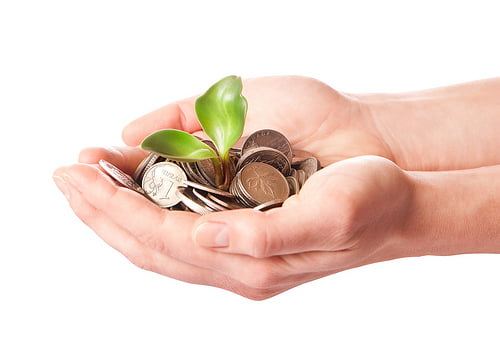

Economy
Poll maps growth of ethical investment understanding and demand
In the wake of the financial crisis, new research suggests that both the demand for and understanding of ethical investment has grown in the past 12 months.
The poll, conducted by Atomik on behalf of sustainable investment consultancy firm Emerald Knight, shows that nearly two-thirds of people (65%) would like to know more about what their bank or building society is doing with their finances. This comes after an overwhelming 86% claimed they were unaware of how their money is invested.
But, in results that will provide the industry with a welcome boost, nearly half of respondents (47%) said that they were likely to opt for ethical investments rather than conventional ones in the future.
However investor knowledge of the area is still lacking, with 59% of people apparently unaware of what an ethical investment is, though this figure is an improvement on the 2011 figure of 63%.
“Ethical investment, through positive results and changing attitudes, is breaking into the mainstream”, said Emerald Knight director James Howard.
“Since the global banking crisis, there’s been increasing concern over the stability of traditional investments, and there’s also much better awareness of how financial institutions use their customers’ money.
“Alongside this, awareness of environmental issues has increased, the world’s population has continued to grow at a rapid pace and people are becoming more concerned about human rights. As a result, the nation is becoming increasingly aware of the impact of its choices.”
Howard added that scandals and crises in the mainstream banking arena were often the driving force behind consumers opting for ethical financial options – a sentiment that a number of interviewees in Blue & Green Tomorrow’s recent Guide to Sustainable Banking echoed.
Indeed, Triodos Bank, which provides 40,000 ethical current accounts in the UK, revealed that it had witnessed a 51% surge in account applications when media scrutiny of the Libor scandal was at its peak in July, and that on the day that former Barclays chief executive Bob Diamond handed in his resignation, it had opened three times as many accounts compared to an average day.
“There’s […] evidence to suggest that recent misdemeanours in the banking sector, such as the Libor rate-rigging scandal, have led to more people than ever reviewing ethical options”, Howard said.
“But they’re by no means prepared to sacrifice good investment sense to buy into such products.
“No investor wants to settle for a serious compromise on returns, and they should never think that it’s a choice between ethics or growth.”
The Emerald Knight research suggests that not only have these scandals prompted many people to transform their finances onto a more ethical footing, it has led them to also significantly lose trust in high street banks, with 80% of respondents claiming this was the case.
But it’s not just the misdemeanours displayed within the mainstream banks that have driven people towards ethical investment; issues like climate change, human rights abuses and deforestation have been driven up the agenda so that now 76% of people claim to be concerned.
At the same time, over half (52%) think that there would have to be a sacrifice in performance if they were to go down the ethical investment route – something that has been proven to be untrue. However, nearly two-thirds of people (61%) think they’d be able to achieve financial and moral returns in tandem by investing ethically.
The Emerald Knight study suggests a bright future for investment that is more ethical, sustainable, responsible and positively impactful than conventional or mainstream finance. Stay tuned for a full rundown of all the results in the form of a Blue & Green Tomorrow infographic next week.
Blue & Green Tomorrow has interviewed a number of specialist ethical financial advisers in the past, and they’re located all across the country. Have a look here to find the one nearest to you.
Further reading:
What kind of investor are you?
Do ethical funds and fossil fuels mix?
Drop in ethical fund sales part of a ‘general decline’
Sustainable investment flourishes amongst European high net-worth individuals


 Environment12 months ago
Environment12 months agoAre Polymer Banknotes: an Eco-Friendly Trend or a Groundswell?

 Features11 months ago
Features11 months agoEco-Friendly Cryptocurrencies: Sustainable Investment Choices

 Features12 months ago
Features12 months agoEco-Friendly Crypto Traders Must Find the Right Exchange

 Energy11 months ago
Energy11 months agoThe Growing Role of Solar Panels in Ireland’s Energy Future





























